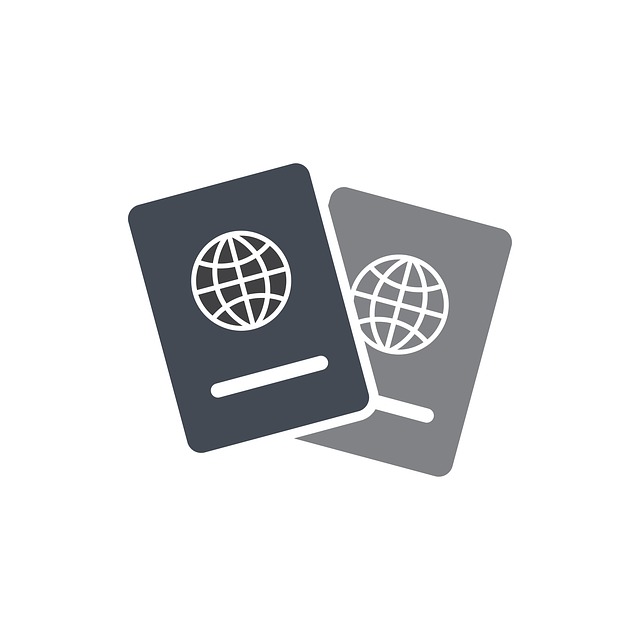In the UK, obtaining licenses and permits often requires certified translations of foreign-language documents into English due to the country's stringent legal requirements. Accredited UK translation services specialize in providing precise, legally recognized translations accompanied by a statement of accuracy and certificate of authenticity, ensuring that translated content accurately reflects the original text. These services are vital for professionals and individuals dealing with UK regulatory frameworks, as they ensure that all necessary paperwork is compliant with British standards, avoiding complications or rejection. For healthcare, finance, legal services, and other sectors, these translation services offer translations that hold the same legal weight as the original documents, which is crucial for maintaining the integrity of the licensing process. Keyword focus: Licenses and Permits UK translation services. It's important to select a reputable service with native speaker translators experienced in legal terminology relevant to your specific UK license or permit application, ensuring that all documentation meets the required standards and facilitates an efficient application process.
When navigating the UK’s licensing processes, the importance of certified translations cannot be overstated. This article demystifies the role of professional translation services in UK licensing procedures, guiding readers through the nuances of document authentication. From comprehending the necessity of such translations to identifying the specific types of documents that necessitate this level of verification, we delve into the certification process and the authoritative bodies setting the standards. Additionally, we offer insights on choosing a reliable translation service to meet your UK licenses and permits requirements, ensuring your applications are compliant and complete.
- Understanding the Necessity of Certified Translations for UK Licensing Processes
- The Role of Accredited Translation Services in UK Licensing Procedures
- Identifying the Types of Documents Requiring Certified Translations for UK Licenses
- The Certification Process: What Makes a Translation Certified?
- Navigating the UK's Official Language Bodies and Their Requirements for Translations
- How to Select a Reliable Certified Translation Service for Your UK Licensing Needs
Understanding the Necessity of Certified Translations for UK Licensing Processes

In the UK, navigating licensing processes often necessitates a precise and legally recognised interpretation of documents from foreign languages to English or vice versa. This is where certified translations play a pivotal role. For individuals and businesses alike, obtaining licenses and permits in the UK that require documentation in a language other than English must be accompanied by translations that hold legal weight. Certified translation services are specialists in this domain, providing translations that are not only accurate but also come with a statement of accuracy and a certificate of authenticity. This certification ensures that the translated content corresponds exactly to the original, thereby upholding the integrity of the UK’s regulatory framework. It is imperative for applicants to understand that uncertified translations could lead to complications or even rejection in licensing processes, as they may not be accepted by regulatory bodies or governmental institutions. By engaging with professional UK translation services, applicants can confidently submit all necessary paperwork, knowing that their translated documents comply with the stringent requirements set forth by the UK’s licensing authorities. This not only streamlines the application process but also mitigates the risk of legal and procedural issues that could arise from non-compliant translations.
The Role of Accredited Translation Services in UK Licensing Procedures

When navigating the complexities of UK licensing procedures, obtaining certified translations plays a pivotal role, especially for individuals and businesses dealing with licenses and permits from foreign jurisdictions. The UK’s regulatory environment often requires official documentation to be presented in English for various licenses, including those pertinent to healthcare, finance, legal services, and more. Accredited translation services are indispensable in this context, as they provide translations that hold the same legal status as the original documents. These services ensure that all text is translated accurately and faithfully, adhering to both linguistic precision and legal compliance. The accuracy of translations by these professional entities is paramount; a single error could lead to delays or even rejection in licensing processes. Moreover, accredited translation services are well-versed in the specific nuances of UK legal language and terminology, ensuring that the translated documents align with UK standards and are accepted without question. This not only streamlines the application process but also upholds the integrity of the UK’s licensing framework by maintaining clear and effective communication between applicants and regulatory bodies.
Identifying the Types of Documents Requiring Certified Translations for UK Licenses

When navigating the UK’s licensing processes, it is imperative to understand which documents require certified translations to ensure smooth and compliant application proceedings. Certified translations are official translations of documents from one language into another, performed by a professional translator who has been accredited by a relevant authority. This certification confirms the accuracy of the translation and its equivalence to the original document. In the UK, licenses and permits often necessitate such translations due to the multitude of individuals and businesses operating across borders, bringing with them a variety of linguistic needs. Commonly, personal documents such as birth certificates, marriage certificates, and educational qualifications may need to be translated and certified when applying for settlement visas or other immigration-related licenses. Similarly, in professional contexts, legal documents, corporate records, and official reports may require certification for UK licensing processes. Utilizing specialized UK translation services is crucial in this regard to avoid delays or rejections due to uncertified translations. These services not only provide the necessary certification but also ensure that the translations adhere to the strict standards set by the UK’s Home Office and other regulatory bodies, thereby facilitating a swift and successful application for licenses and permits.
The Certification Process: What Makes a Translation Certified?

When engaging with UK licensing processes, the necessity for accurate and certified translations cannot be overstated. A certified translation is a translation that accompanies a legal document but is not a certified translation until it has been signed and stamped by a qualified translator who is registered and recognized by the relevant authorities in the country where the document was originally issued. In the UK, this typically involves professional translation services that offer UKAS (United Kingdom Accreditation Service) certification, which is a mark of excellence for translation services. These services ensure that the translated documents meet the stringent standards set by UK licensing bodies. The process begins with the translator’s careful interpretation of the source text, followed by a thorough review to guarantee that every word and nuance is accurately conveyed. Once the translation is complete, the translator reviews the document in its entirety, making certain that it aligns with the original content, both in meaning and intent. Upon successful validation, the translator affixes their signature and official stamp or seal to the translated document, certifying its accuracy and authenticity. This certification is crucial for UK licensing processes as it attests to the reliability of the translation, enabling authorities to make decisions based on true representations of the original documents. Therefore, when dealing with legal translations in the UK, it is imperative to utilize professional translation services that can provide certified translations to ensure smooth navigation through the licensing and permits system.
Navigating the UK's Official Language Bodies and Their Requirements for Translations

When engaging with UK licensing processes, the necessity for precise and authoritative translations cannot be overstated. The United Kingdom hosts a multitude of official language bodies, each with its own stringent requirements for translated documents. These bodies include the Home Office, UK Visas and Immigration (UKVI), and various local authorities that oversee different types of licenses and permits. Applicants must ensure that their translations are not only accurate but also certified to meet the standards set by these institutions. Certified translation services specialize in this field, providing translators who are native speakers or members of relevant institutes, guaranteeing the authenticity and reliability of the translations. These services understand the intricacies of UK regulations and offer translations that adhere to the Official Documents Standards set by the Association of Translation Companies (ATC) or similar bodies. This commitment to quality ensures that all translated documents are recognized and accepted by UK licensing authorities, facilitating a smoother and more efficient application process for individuals and businesses alike. Utilizing professional UK translation services is essential for anyone requiring legal, technical, or personal documents to be accurately conveyed in the necessary language, thereby eliminating potential delays or complications during the licensing procedures.
How to Select a Reliable Certified Translation Service for Your UK Licensing Needs

When engaging with UK licensing processes, the accuracy and reliability of certified translations are paramount. The UK’s stringent regulations require that all foreign-language documents are precisely translated and certified to be equivalent to the English text. To ensure compliance and avoid delays or rejections in your licensing application, it is crucial to select a translation service that specializes in legal and official document translations. A reputable UK translation services provider will have a team of professional translators who are native speakers with expertise in legal terminology relevant to the licenses and permits you seek. They should also be familiar with the specific requirements of the licensing authority you’re dealing with, be it for a business license, professional registration, or other types of permits.
Before finalizing a translation service, verify their credentials and experience. Look for services that offer a certification process in line with UK standards, such as translations certified in accordance with the UK Home Office or the Professional Translators’ Council (IoLET). Additionally, reviews and testimonials from previous clients can provide insight into the quality of service you can expect. Ensure the translation service you choose has a robust quality assurance process to guarantee the translations are accurate, complete, and meet the legal requirements for your UK licensing needs. This due diligence will safeguard your application process and help you navigate the licensing framework with confidence.
In conclusion, navigating the UK’s licensing processes can be a complex endeavour for individuals and businesses alike. A critical component of this process often involves certified translations to ensure that all documentation meets the stringent requirements set forth by official language bodies in the UK. It is imperative to engage with translation services that hold accreditation, as their expertise is instrumental in guaranteeing the acceptance of translated documents for UK licenses and permits. By understanding the necessity of these certified translations and identifying the types of documents that require them, individuals can seamlessly integrate into the UK’s regulatory framework. Selecting a reliable service provider specialising in UK translation services is pivotal to successfully completing licensing procedures. This article has provided a comprehensive guide to this essential aspect of relocation or legal compliance within the UK, ensuring that your translated documents stand as accurate and authoritative representations of the original content.
